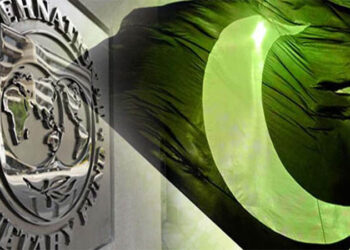
A report released by the Ministry of Finance evaluating three years of the achievements of targets identified in the Poverty Reduction Strategy Paper (2008-11) largely blamed floods 2010 and 2011 and the disastrous war on terror for failure to meet the pro-poor targets that accounted for a ‘sharp decline in nearly all macroeconomic indicators.’
One sector surprisingly identified as a major sufferer in terms of failing to meet the PRSP targets was agriculture with the report maintaining that “in spite of its considerable significance, the agriculture sector remained neglected by the policymakers.”Qasoor This statistic requires an explanation from the present government stalwarts who have consistently cited agriculture sector growth as a major landmark achievement with claims that conspicuous consumption in the rural areas has risen and is a measure of greater across-the-board prosperity of those engaged in the sector.
The other four sectors that the report maintains have failed to meet PRSP targets are education, social security and welfare, Bait-ul-Mal and Benazir Income Support Programme (BISP).Education has devolved to the provinces as per the 18th Constitutional Amendment.However, the federal government remains proactively engaged in social safety products including its flagship project BISP.The question is why did the federal government fail to implement its own stipulated targets with respect to social safety nets? The answer obviously is lack of resources to invest the amounts that it had committed to in the budget with the report attributing this condition to floods and the war on terror; or, in other words, higher than budgeted expenditures.
This is not quite an accurate assessment if one looks at the budget document 2011-12: in 2010-11 defence allocation was only 2.4 billion rupees more than budgeted, while transfer payments (inclusive of assistance to flood victims) was 82 billion rupees more than budgeted.However current expenditure rose by 298 billion rupees more than was budgeted and the major beneficiary of this enhanced outlay was rising domestic debt and subsidies for inter-disco tariff differential (which rewards the poor performers).
Failure to meet macroeconomic indicators therefore cannot be laid solely on the doorstep of law and order as well as the floods, given that the government has yet to implement the necessary reforms that were identified and accepted in 2008 as critical for achieving macroeconomic stability.
These reforms were noted in the first Letter of Intent submitted to the International Monetary Fund board as a prerequisite for the disbursement of the first tranche of the 7.3 billion dollar Stand-By Arrangement and included (i) broad-basing the tax system, ending exemptions and implementing value-added tax; (ii) zero borrowing from the State Bank of Pakistan which was implemented during Shaukat Tarin’s tenure but has been abandoned by the incumbent Finance Minister; (iii) eliminating the inter-circular debt that is responsible for continued heavy loadshedding; and (iv) making the SBP independent in terms of policy from the Ministry of Finance.
Additionally, there were calls for austerity, a blueprint for which was submitted by Tarin to the cabinet just before his resignation but it remained unimplemented.The continued injections into the poorly performing public sector entities is yet another constant drain on the country’s scarce resources and four years down the line rather well-thought out restructuring plans remain unimplemented.The BISP provides 1,000 rupees per month to low-income families who, starting in 2010, have qualified for the programme through development of a World Bank-supported poverty “scorecard” system.
The annual cost of reaching 5 million beneficiaries is approximately Rs 60 billion ($700 million) each year.The World Bank offered support through a $60 million technical assistance programme to better manage BISP and other social protection programmes while USAID has also supported BISP with 7.2 billion rupees grant.The Asian Development Bank also contributes funds to the BISP.Barring the USAID, all other assistance is through loans though at concessional terms indicating that the money so borrowed adds to the stock of debt.
Be that as it may, severe resource domestic constraints account for slashing BISP – from 50 to 35 billion rupees last year – with few convinced that the 50 billion rupees allocated this year would be disbursed.The oncoming elections would no doubt lead to more allocations for the BISP, which is supported however if the government continues printing money and borrowing domestically to meet a rise in social safety net allocations then the commensurate rise in inflation would render any such outlay irrelevant.
A better option would be to achieve macroeconomic stability through implementing reforms focused on increasing output through lower cost of borrowing for the private sector (as opposed to crowding out private sector borrowing) as well as ensuring capacity output of the energy sector leading to a reduction in inflation. – Brecorder












